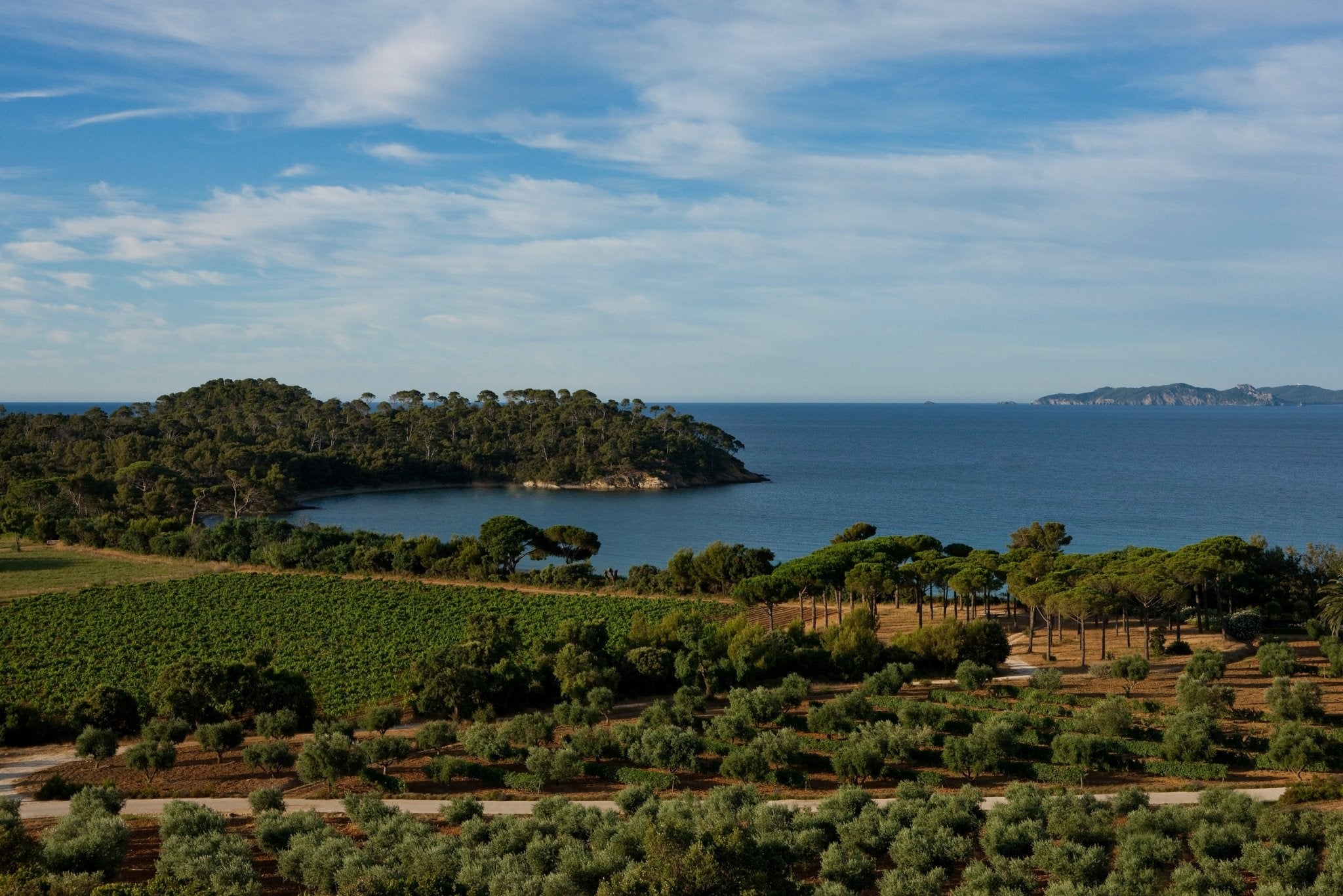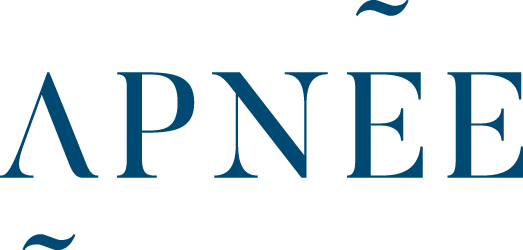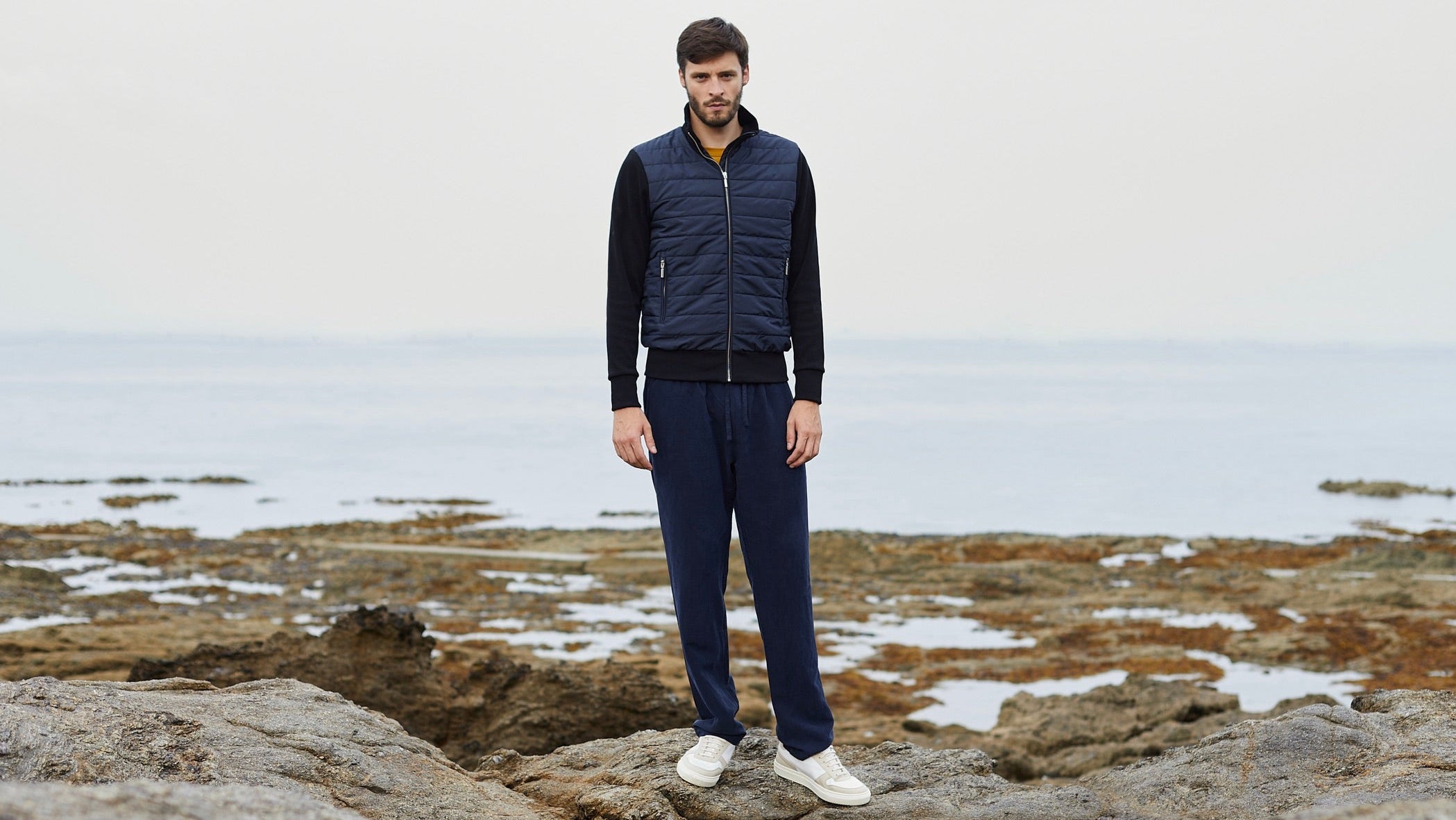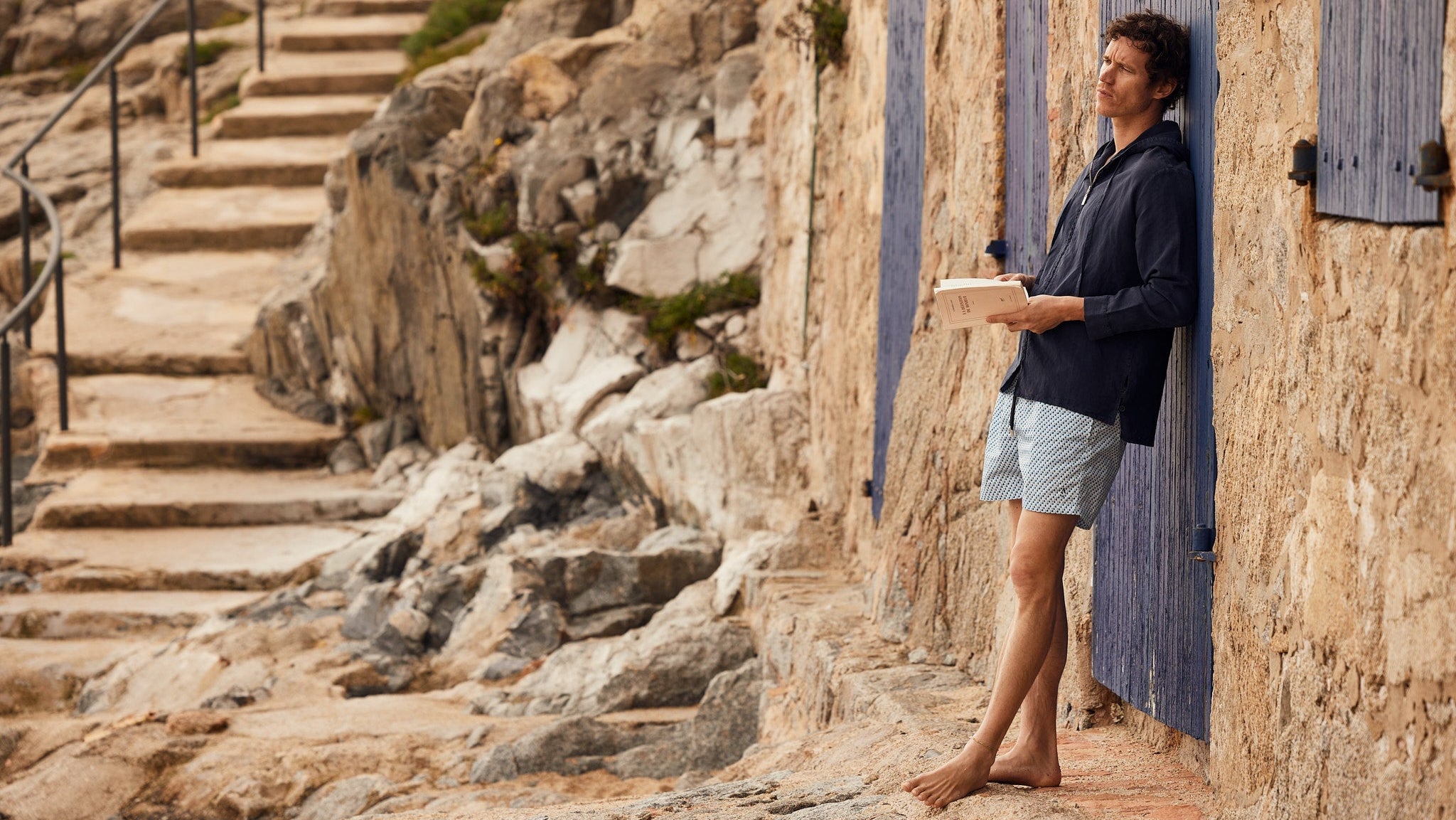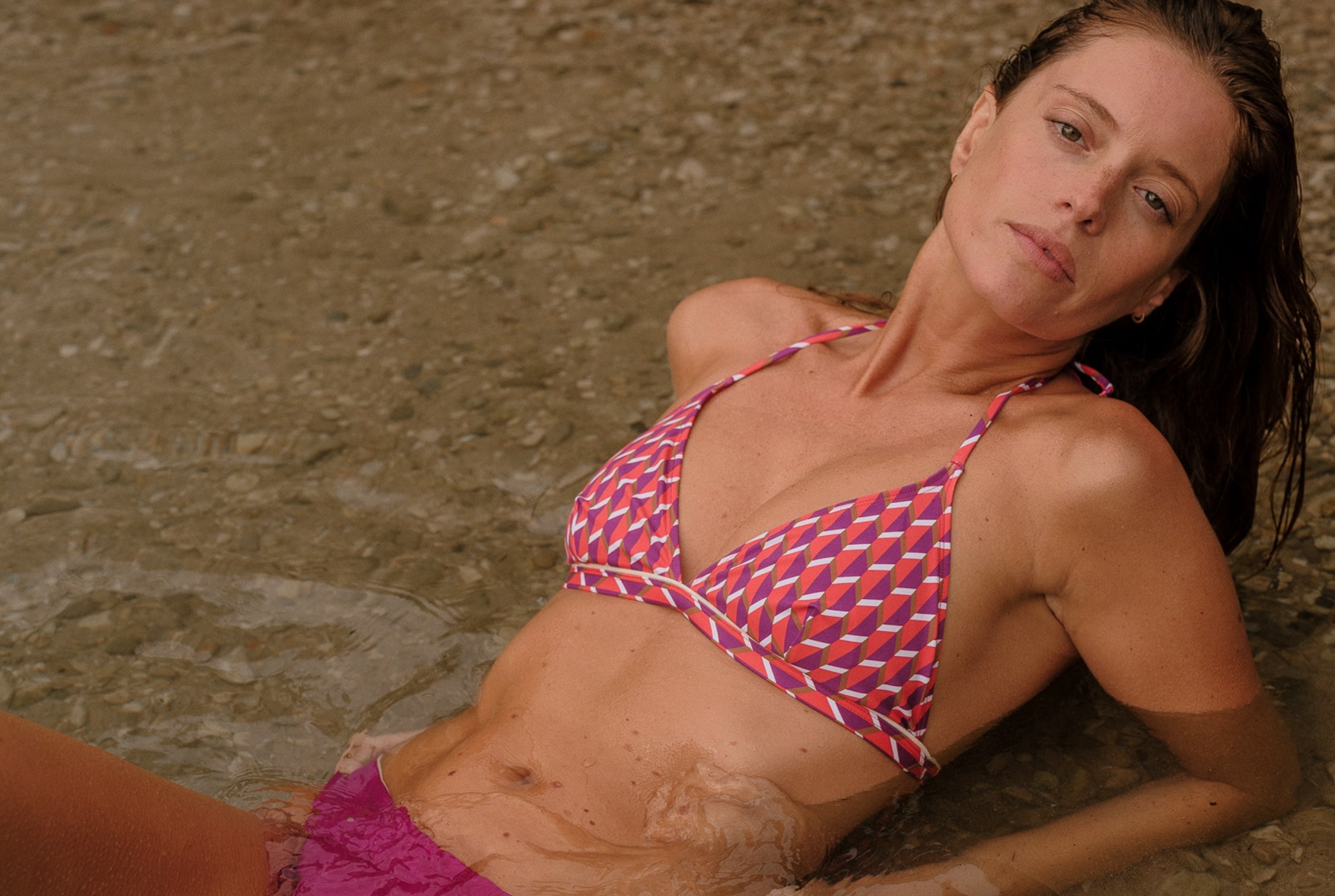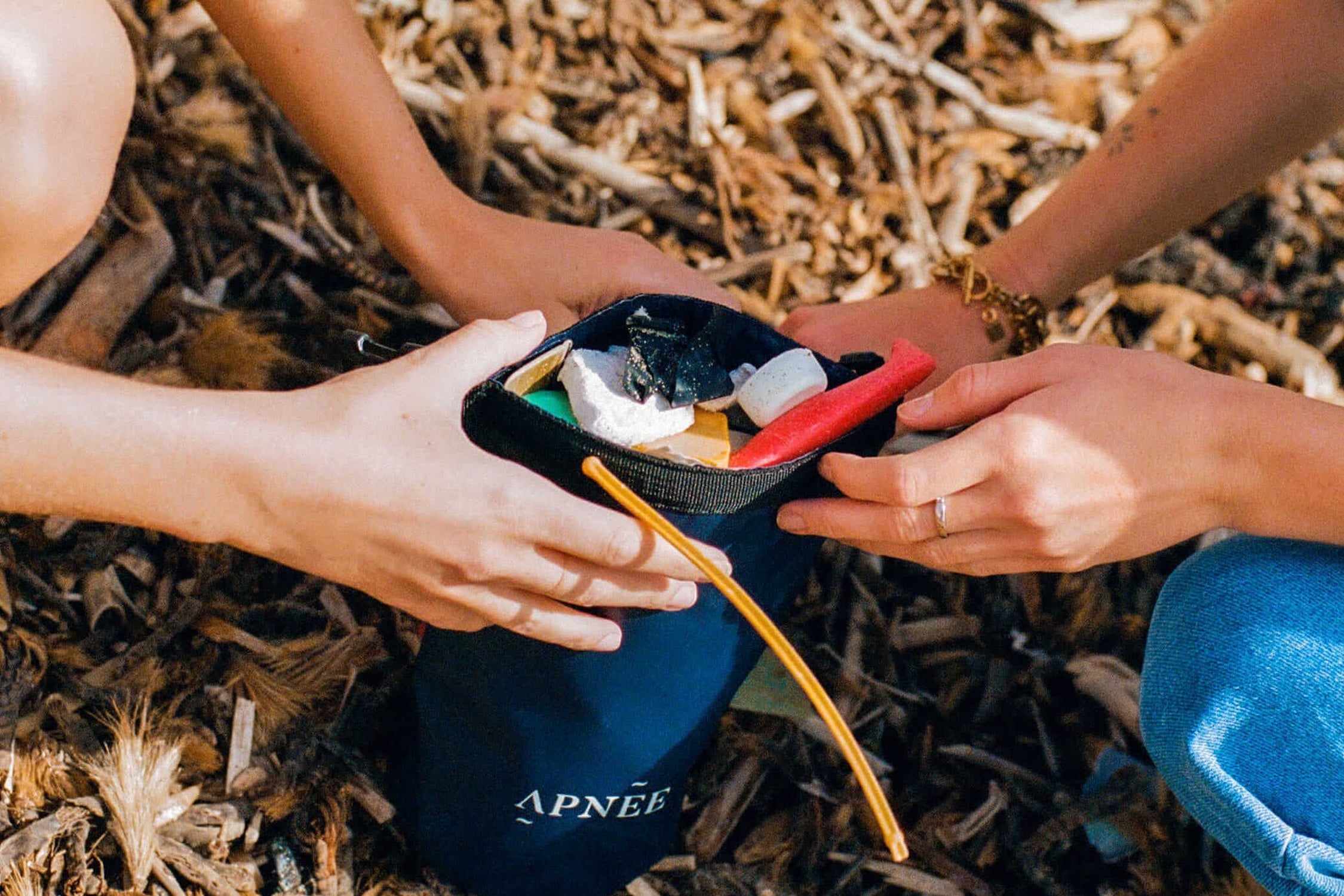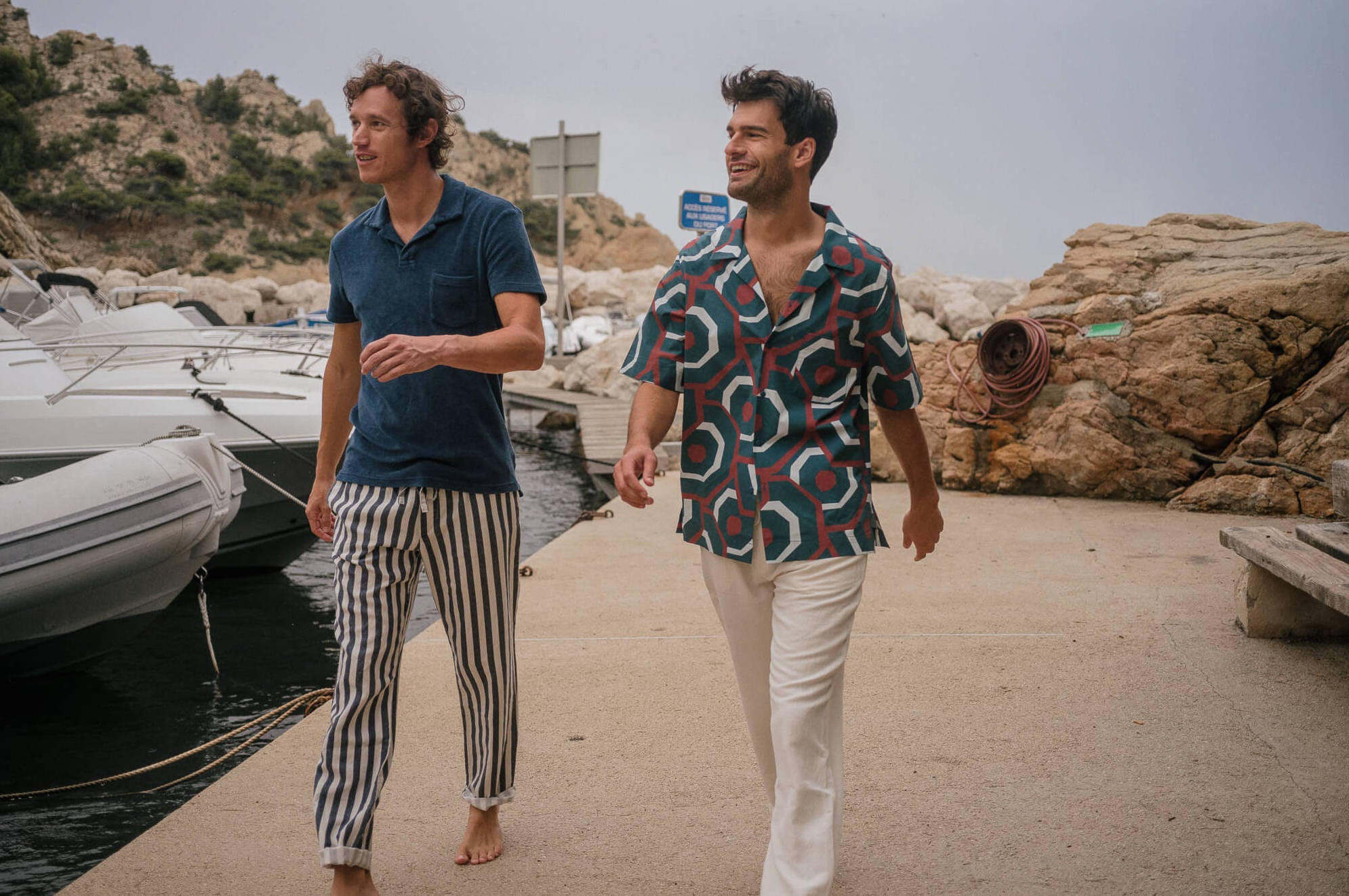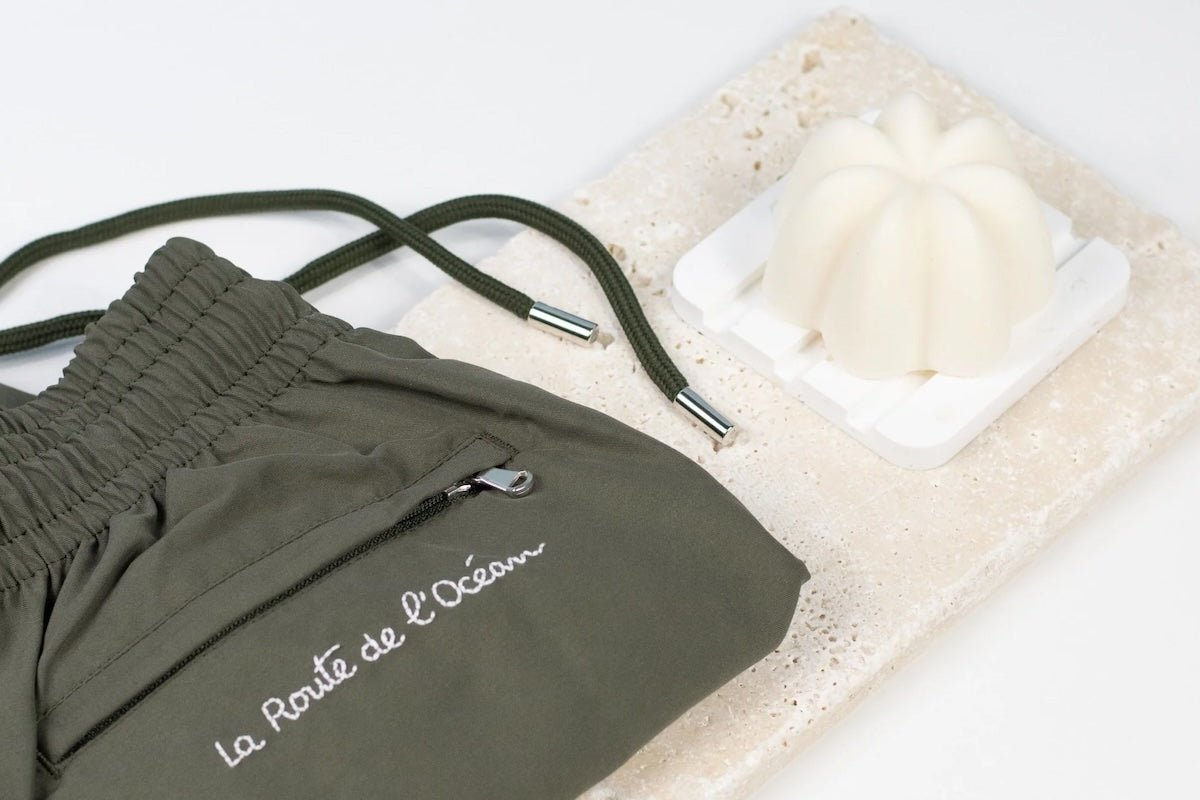At Apnée, we make 100% recycled swim shorts from plastic waste collected in the Mediterranean Sea, but our commitment doesn't stop there.
Apnée is committed to preserving the oceans
Beyond the choice of fabrics, manufacturing circuits, transparency towards our customers, our duty is also to question ourselves every day about our practices, our mission to raise awareness in our community about the protection of the oceans .
This is why we decided to join Umaï on the “ Ocean Route ”, an adventure they are undertaking for the second time, this time in the Mediterranean, going from Barcelona to Genoa. The aim of this project is to raise awareness, inform about eco-responsibility, and highlight the new actors involved .
On Tuesday, July 20, we traveled by train and back to participate in the roundtable discussion on the theme “Between Land and Sea.” A long journey that took us to Château Léoube, a magical and preserved place. We returned with a wealth of lessons that we want to share with you today.
A rich exchange in the heart of Domaine Léoube
Transmit and create automatisms
Bad practices often come from a lack of understanding of the nature and consequences of our actions.
Do you know how long it takes for a cigarette butt to degrade and how many liters of water it will pollute?
Some people think about bringing their can back, but leave their cigarette butts in the sand. However, one of the components of cigarette butts: cellulose acetate, takes almost 10 years to biodegrade , and a single cigarette butt can pollute up to 500 liters of water , a dramatic consequence for our oceans.
In the Port Cros National Park , initiatives have already begun to bear fruit, such as the removal of beach bins, encouraging holidaymakers to take their waste home, the distribution of pocket ashtrays, the marking of marine trails with explanatory panels, and the distribution of guides explaining eco-friendly actions to adopt.
The goal: to transmit and create automatisms.
Teamwork
The interdependence of local actors is a key factor in the success of this quest.
Fortunately, the relationship between public and private institutions is not always contradictory. Today, in the heart of the Port Cros National Park, the collaboration between Château Léoube and public service actors works well, and this is what keeps this place preserved.
Château Léoube, an eco-responsible wine estate looking to the future
Located just a few kilometers from Bormes-les-Mimosas, Château Léoube is a wine estate aware of today's challenges, focused on organic farming and promoting short supply chains, harmony and respect for nature .
For the past ten years, the estate has been striving to optimize the eco-responsibility of its services and consumption patterns. It offers advanced agro-agriculture, systems combining new technologies and traditional techniques, with a focus on performance and respect for the environment.
Château Léoube is the perfect place to soak up the magic of the South of France, with your feet in the sand, the sound of the waves in your ears, and olive groves and vineyards just a stone's throw away. You'll also find a magnificent restaurant under the cork oaks, serving local fish and vegetables from the estate.
Being committed is a journey filled with encounters, questions and doubts, love and passion. Our love for the oceans is what drives us every day, and our love for our community is what pushes us to always go further without giving up.
Attending the talk:
Representatives of Château Léoube, the Umai team, the Explore & Preserve association, the Forêt Modèle de Provence association, those responsible for the coastal path at the Bormes-Les-Mimosas town hall, the Environmental Education and Awareness Managers of the Port-Cros National Park, the Free Syndicate Association for Forest Management of the Varoise Suberaie and our team.
